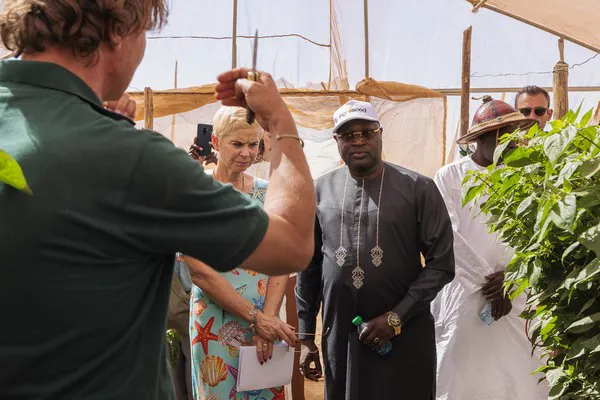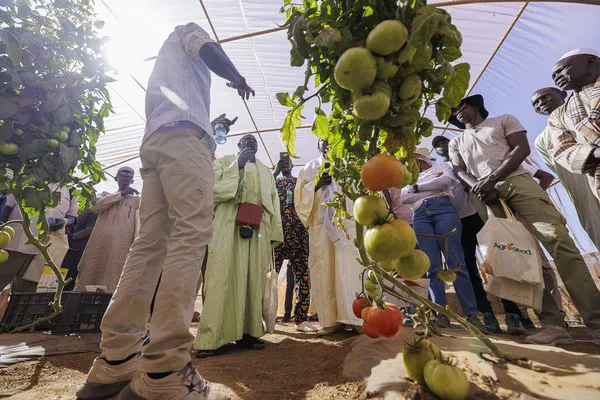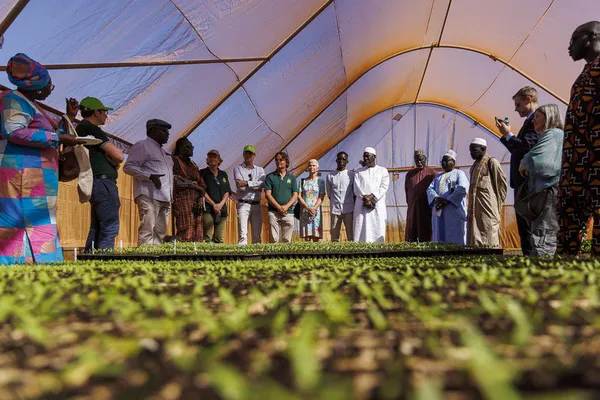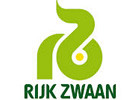The new Training & Demonstration Centre HortiSenegal project kicked off in Kirene, Senegal, on March 9. In this initiative by vegetable breeding company Rijk Zwaan and co-funded by the Dutch government, a consortium of companies will provide training to local farmers. The goal is not only to increase the cultivation of fresh and food-safe vegetables in Senegal but also to generate a better income for growers.
Senegal currently depends on imports for half of its vegetable consumption. While there is potential to increase local production in the Niayes region, especially around Kirene and St. Louis, smallholders lack business skills and access to high-quality inputs, plus their farming approaches are far from optimal. The HortiSenegal project is aimed at changing this.

Growing vegetables sustainably in Africa
The official project launch was extremely well attended, including by the consortium partners, farmers’ organizations, and government representatives on behalf of both the Netherlands and Senegal. Among those present were Papa Malick Ndao, Secretary-general of the Ministry of Agriculture of Senegal, and Joan Wiegman, the Dutch ambassador in Senegal. Farmers from the local region expressed their enthusiasm for the initiative and are looking forward to benefiting from the consortium partners’ knowledge.
Edwin van der Klugt, Business Manager Middle East & Africa at Rijk Zwaan, is pleased with the level of involvement in this project: “The project fits with our long-term vision of working together to develop sustainable vegetable production in Africa. We are now joining forces with all partners to promote the horticultural sector in Senegal as a profitable and lasting business opportunity. Our goal is to support the advancement of 3,000 smallholders as well as employees of horticultural companies.”

Public-private partnership
To achieve this, several companies have formed a consortium. A training center is being set up at Senegalese company Agroseed, and the facility will also host a demo of sustainable vegetable cultivation, both open-field and in tunnels. Holland Green Tech is supplying the drip irrigation system that runs on solar-powered pumps, Salt Doctors are providing solutions for soil salinity, and Koppert Biologicals is supporting biological pest control. Rijk Zwaan is coordinating the project and will take care of high-quality seeds for typically African vegetables – which are bred by the company in Tanzania – as well as for internationally cultivated vegetables that suit the local climate. Farmers will receive training from experts from all the companies involved. The Dutch government is co-funding this public-private partnership.

Train the trainer
The project will run for 3.5 years and will be rolled out in phases. First of all, the consortium partners will provide training to 30 ‘lead farmers’ in Kirene on Good Agricultural Practices (GAP), Integrated Pest Management (IPM), drip irrigation, and sustainable growing. Over the next three years, the project will create a 500m2 demo field at each of the 30 lead farmers’ premises so that they themselves can then provide training to smaller local farmers in conjunction with the consortium partners. The training sessions will also cover financing options, markets, storage, and soil improvement.

 Rijk Zwaan
Rijk Zwaan